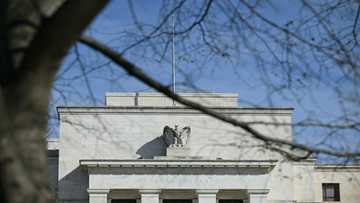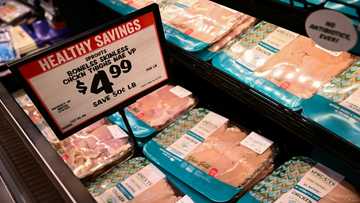Eurozone economy rebounds in first quarter, inflation stable in April

Source: AFP
The eurozone economy emerged from recession with greater than expected growth in the first quarter of 2024 and inflation under control, official data showed Tuesday.
The figures are unlikely to stop the European Central Bank (ECB) from cutting interest rates in June as expected, according to economists despite the growth figure.
The EU's official data agency said growth in the 20-country single currency area reached 0.3 percent in the first three months of the year compared to the previous quarter.
Analysts surveyed by FactSet and Bloomberg had expected growth of 0.1 percent.
But the figures showed the eurozone economy had slipped into a technical recession in the second half of last year after gross domestic product retreated by 0.1 percent in the last two quarters of 2023.
The better-than-hoped-for growth follows welcome news for consumer prices.
Eurostat said the eurozone's annual rate of inflation remained unchanged at 2.4 percent in April from the previous month, in line with economists' expectations.
The figure means the rate is still close to the ECB's two-percent target.
ECB officials will also welcome the data for core inflation, which strips out volatile energy, food, alcohol and tobacco prices and a key indicator of the bank, after it slowed to 2.7 percent in April, from 2.9 percent in March.
Eurozone inflation has significantly fallen from the peak of 10.6 percent reached in October 2022 after Russia's assault on Ukraine and the energy crisis that followed.
The ECB aggressively hiked rates from July 2022 to tame soaring price rises but has frozen borrowing costs in the past few months amid growing calls for a rate cut.
"Today's stronger-than-expected Q1 GDP data means the eurozone has come out of recession but, with core and services inflation both declining in April, this will not prevent the ECB from starting its easing cycle in June," said Andrew Kenningham of London-based consulting firm Capital Economics.
'Optimism' returns
There was further good news in Tuesday's data for the eurozone after its two biggest economies, Germany and France, recorded growth of 0.2 percent in the first quarter.
"Optimism has returned to the German economy," ING bank analyst Carsten Brzeski said after Germany dodged a recession.
Southern Europe appeared to be doing even better. The Spanish economy grew more than expected by 0.7 percent in the first quarter of 2024 due to higher exports and business investment. Italy registered growth of 0.3 percent for the same period.
International Monetary Fund chief Kristalina Georgieva, who was in Brussels for meetings with EU officials, said she was "optimistic" about Europe's growth.
"It is actually growing. The economy is in positive territory despite the energy shock," she told journalists.
But Georgieva warned that "inflation is going down, but it's not over".
Energy prices in the eurozone dipped in April, recording a significantly narrower drop of 0.6 percent compared with a fall of 1.8 percent in March.
Across the 27-country European Union, Lithuania recorded the lowest inflation rate in April, at 0.4 percent, Eurostat data showed. Finland was not far behind, registering an inflation rate of 0.6 percent in April.
PAY ATTENTION: Stay informed and follow us on Google News!
Source: AFP




